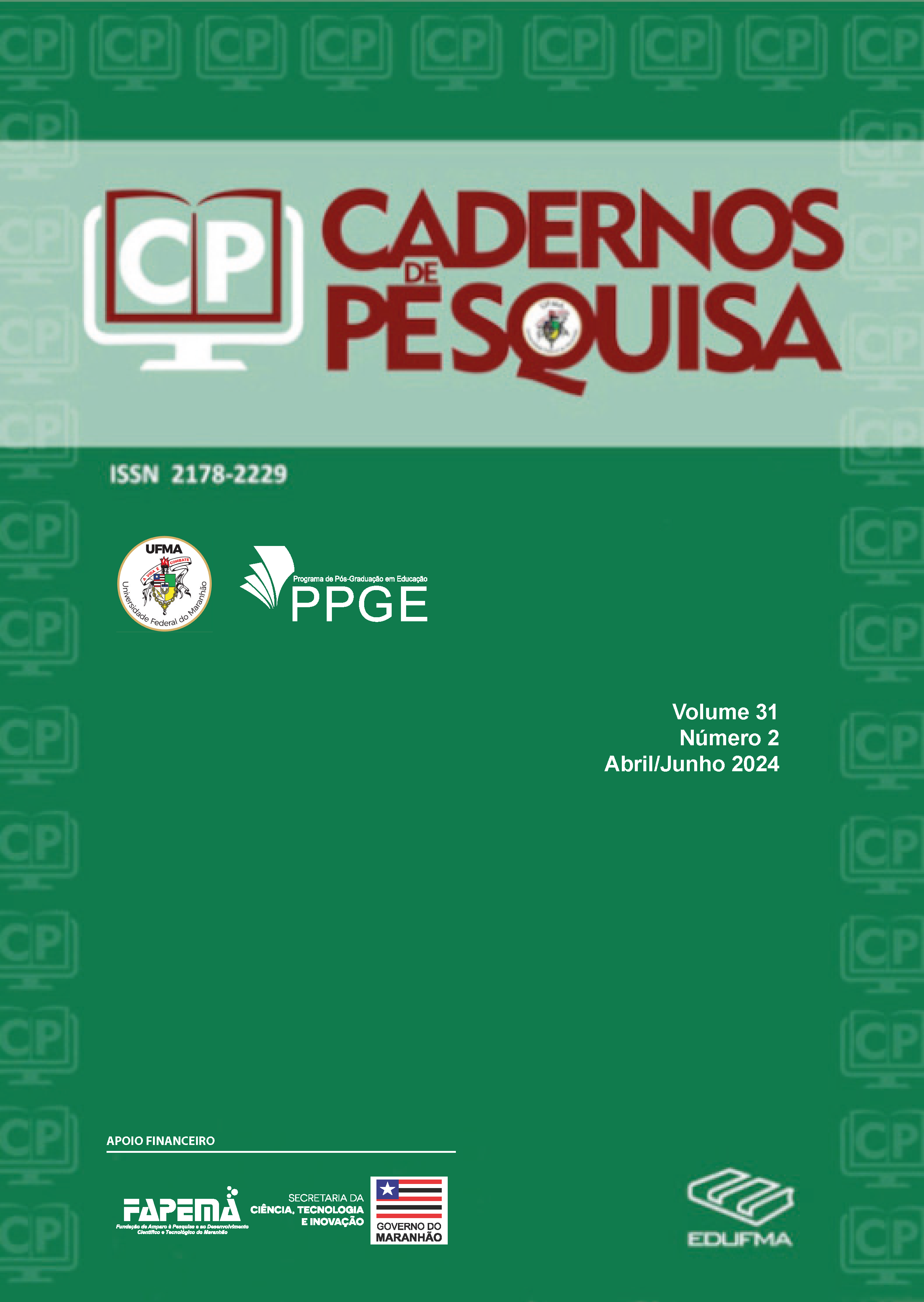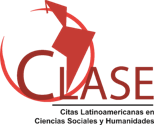Autoetnografia: self, identidade e reflexão como categorias de análise em etnografia
DOI:
https://doi.org/10.18764/2178-2229v31n2.2024.24Parole chiave:
autoetnografia, self, identidade, reflexão, etnografiaAbstract
A autoetnografia associada às pesquisas etnográficas desponta na literatura com as pesquisas de
Ellis e Bochner a partir de 1999 e nela, ganha espaço como uma alternativa às etnografias que abordam:
histórias e vida, relato de si mesmo e as formas como o pesquisador/a tenta se inserir enquanto sujeito de fala na narrativa etnográfica. As questões orientadoras são: O que é autoetnografia? Como o termo tem sido conceituado e quais as categorias a ele associadas? Quais os autores mais citados nesses estudos e como eles explicam autoetnografia? Os objetivos desse artigo são: explorar o conceito de autoetnografia, identificar linhas metodológico-epistemológicas que orientaram as pesquisas analisadas e traçar um perfil conceitual das categorias associadas ao termo. A metodologia utilizada foi a revisão bibliográfica sistemática (RBS-Roadmap) e o software Atlas.ti23 para as análise e derivação de resultados a partir de 2.200 artigos em
língua inglesa. Desses foram selecionados 286 artigos que usavam o termo autoetnografia no título. Como resultados preliminares, apontamos que embora os artigos deem ênfase a uma escrita de si, em primeira pessoa, chamando atenção para categorias como self, identidade e reflexão, o uso excessivo da narrativa autobiográfica ou biográfica, pode tornar o empreendimento etnográfico etno, da autoetnografia, menor ou menos importante. Esse fato revela que nesses estudos o uso do termo etnografia foi associado às pesquisas etnográficas apenas para validar as narrativas de si mesmos.
Downloads
Riferimenti bibliografici
ADAMS, Tony E.; MANNING, Jimmie. Popular Culture Studies and Autoethnography: An Essay on Method. The Popular Culture Studies Journal. Vol. 3, nº. 1-2. 2015 p. 187-222. Disponível em: http://mpcaaca.org/wp-content/uploads/2015/09/PCSJ-Volume-3-Issues-12.pdf. Acesso em: 28 de maio de 2024.
ADAMS, Tony. E.; JONES, Stacy Linn Holman; ELLIS, Carolyn. Autoethnography: Understanding Qualitative Research. New York: Oxford University Press. 2014. 216p. ISBN: 9780199972098.
ALLEN-COLLINSON, Jacquelyn; HOCKEY, John. Autoethnography: Self-indulgence or Rigorous Methodology. In M. McNamee (ed.) Philosophy and the Sciences of Exercise, Health and Sport. London: Routledge, p. 187-202. 2005. 259p.
ALLEN-COLLINSON, Jacquelyn. Autoethnography as the engagement of self/other, self/culture, self/politics, selves/futures, In Stacy Holman Jones; Tony E. Adams.; Carolyn Ellis, (Eds). Handbook of Autoethnography. New York: Routledge. Cap. 13, p 281-300.2013. 2013.736 p.
ANDERSON, Leon. Analytic Autoethnography. Journal of Contemporary Ethnography. Vol. 35, nº 4. 2006. https://doi.org/10.1177/0891241605280449.
Bochner, Arthur P A. Criteria against ourselves. Qualitative Inquiry. Vol. 6, p. 266–272. 2000.
BOCHNER, Arthur P.; ELLIS, Carolyn. Communication as autoethnography. In Gregory J. Shepherd; Jeffrey St. John; Ted Striphas (Eds.), Communication as Perspectives on theory. p.110–122. Thousand Oaks, CA: Sage. 2006.
BOCHNER, Arthur P.; ELLIS, Carolyn. Evocative Autoethnography: Writing Lives and Telling Stories. New York: Routledge. 2016. https://doi.org/10.4324/9781315545417.
BOYLE, Maree Veronica; PARRY, Ken. Telling the whole story: The case for organizational autoethnography. Culture and Organization, Setembro 2007, vol. 13. nº 3, pp. 185–190. https://doi.org/10.1080/14759550701486480 .
CAULLEY, Darrel N. Making Qualitative Research Reports Less Boring: The Techniques of Writing Creative Nonfiction. Qualitative Inquiry. Vol.14, nº.3, p.424-449. 2008. https://doi.org/10.1177/1077800407311961.
CAYARI, Christopher. Musical theater as performative autoethnography: a critique of LGBTQIA+ representation in school curricula. International Journal of Education & the Arts. Vol. 20, nº.10. 2019. http://doi.org/10.26209/ijea20n10.
CHANG, Heewon. Autoethnography as method. Walnut Creek, CA: Left Coast Press. 2008.
CHANG, Heewon. Individual and Collaborative Autoethnography as Method a Social Scientist’s Perspective. In Stacy Holman Jones; Tony E. Adams.; Carolyn Ellis, (Eds). Handbook of Autoethnography. New York: Routledge. Cap. 3, p 107-123. 2013.
CONFORTO, Edivandro Carlos; AMARAL, Daniel Capaldo; SILVA, Sérgio Luis da. Roteiro para revisão bibliográfica sistemática: aplicação no desenvolvimento de produtos e gerenciamento de projetos. 2011, Anais. Porto Alegre, RS: Escola de Engenharia de São Carlos, Universidade de São Paulo, 2011. Disponível em: https://repositorio.usp.br/item/002833837 . Acesso em: 26 maio de 2024
CORBIN, Juliet M.; STRAUSS, A.L. Grounded Theory Research: Procedures, canons, and evaluative criteria, Qualitative Sociology Vol. 13, nº1, p 3–21. 1990. https://doi.org/10.1007/BF00988593 .
CRENSHAW, Kimberle. Mapping the Margins: Intersectionality, Identity Politics, and Violence against Women of Color. Stanford Law Review, vol. 43, no. 6, 1991, pp. 1241–99. https://doi.org/10.2307/1229039.
CUNNINGHAM, Sally Jo; MATT, Jones. Autoethnography A tool for practice and education, Conference Proceedings. 6th ACM SIGCHI New Zealand Chapter's International Conference on Computer-Human Interaction: Making CHI Natural, 2006, Auckland, New Zealand, julho 7-8, 2005. 10.1145/1073943.1073944.
DELAMONT, Sara. Arguments against Auto-Ethnography. Conference at British Educational Research Association. Annual Institute of Education, University of London, 5-8. September 2007.
DELAMONT, Sara. The only honest thing: autoethnography, reflexivity and small crises in fieldwork. Ethnography and Education. Vol. 4, nº 1. 2009, p. 51-63. https://doi.org/10.1080/17457820802703507.
DENZIN, Norman K. Interpretive autoethnography. 2ªed. Thousand Oaks, CA: Sage. 2014.
DENZIN, Norman K. Performance autoethnography: critical pedagogy and the politics of culture. 2nd. Ed. New York: Routledge. 2018.
DUNCAN, Jack W. A case for great books in management education. Academy of Management Learning & Education. Vol. 3, nº.4, p. 421-428. 2004. Disponível em: http://www.jstor.org/stable/40214312. Acesso em 28 de maio de 2024.
ELLIS, Carolyn; ADAMS, Tony E. Qualitative Scholar Conversation with Carolyn Ellis and Tony Adams. Odum Istitute for Resarch in Social Science. YouTube, video: Qualitative Research Summer Intensive course: The Power and Practice of Autoethnography: Storytelling that Deepens Knowledge and Soothes the Soul. 2024 Disponível em: https://youtu.be/HqWHwhPydDM?si=KKMA6kITyNx608XW . Acesso em 28 de maio de 2024.
ELLIS, Carolyn; ADAMS, Tony E.; BOCHNER, Arthur P. Autoethnography: An Overview. Forum Qualitative Sozialforschung / Forum: Qualitative Social Research, vol. 12, nº. 1, 2011. Disponível em: http://nbn-resolving.de/urn:nbn:de:0114-fqs1101108. Acesso em: 26 maio. 2024.
ELLIS, Carolyn; BOCHNER, Arthur (Eds). Composing ethnography : alternative forms of qualitative writing. Walnut Creek, CA: AltaMira Press. 1996. 400p.
ELLIS, Carolyn; BOCHNER, Arthur. Analyzing analytic autoethnography: An autopsy. Journal of Contemporary Ethnography. Vol. 35, nº 4. 2006. p 429-449. https://doi.org/10.1177/089124160628697.
ELLIS, Carolyn; BOCHNER, Arthur. Autoethnography, Personal Narrative, Reflexivity: Researcher as Subject, In Norman Denzin and Yvonna Lincoln. The Handbook of Qualitative Research. Thousand Oaks, CA: Sage. 2000, p733-768
ELLIS, Carolyn. The Ethnographic I: A Methodological Novel about Autoethnography. Vol.13.Ethnographic alternatives book series. Walnut Creek, CA: AltaMira Press. 2004.
FA'AVAE, David. Giving voice to the unheard in higher education: Critical autoethnography, Tongan males, and educational research. Mai Journal. Vol. 7, nº 2. 2018. https://doi.org/10.20507/MAIJournal.2018.7.2.2
FOUCAULT, Michel. A escrita de si. In: Motta, B. M. (Org.) Rio de Janeiro: Forense Universitária. (Coleção Ditos e Escritos) 2006. p. 145-162. Disponível em: http://www.historiacultural.mpbnet.com.br/pos-modernismo/Foucault-A_escrita_de_si.pdf. Acesso em: 26 maio. 2024
HAMILTON, Miriam. An Autoethnographic self-study navigating the transition to becoming a STEM teacher educator. The Qualitative Report, vol. 26, nº.1, p. 296-315. 2021. https://doi.org/10.46743/2160-3715/2021.4462 .
HAO, Richie Neil. Performing Fortune Cookie: An Autoethnographic Performance on Diasporic Hybridity. In: Robin M Boylorn e Mark P. Orbe, (Eds) Critical Autoethnography: Intersecting cultural identities in everyday life. Cap. 5, p.96-110. Walnut Creek, CA: Left Coast Press. 2014.
HARWOOD, Stephen: EAVES, Sally. In search of an autoethnographic method. 16th European Conference on Research Methodology for Business and Management Studies, ACPI. Dublin Institute of Technology (DIT) Dublin, Ireland, 22-23 June 2017.p.145-153. 2017.
HEIDER, Karl G. What Do People Do? Dani Auto-Ethnography. Journal of Anthropological Research, vol. 31, no. 1, 1975, pp. 3–17. Disponível em: http://www.jstor.org/stable/3629504. Acesso em 28 de maio de 2024.
HENANDEZ, Kathy-Ann C. Embracing the Perspective of the Other. In K. A. Longman, M. Loyd- Paige, R. Hernandez, K. C. Hernandez, A. Ash, Diversity Matters: Race. Ethnicity and the Future of Christian Higher Education, Abilene Christian University Press. 2017.
JOHNSON, Royel M. Black and Male on Campus: An Autoethnographic Account. Journal of African American Males in Education. Vol. 4, nº 2. 2013.
JONES, Stacy Holman; ADAMS, Tony E.; ELLIS, Carolyn (Eds). Handbook of Autoethnography. New York: Routledge. 2013.
JONES, Stacy Holman; PRUYN, Marc. Creative Selves/Creative Cultures: Critical Autoethnography Performance and Pedagogy. Cham, Switzerland: Springer Nature. 2018. https://doi.org/10.1007/978-3-319-47527-1.
JONES, Stacy Holman. Living Bodies of Thought: The Critical in Critical Autoethnography. Qualitative Inquiry. Vol. 22 , nº 4, p.1-10, 2016. https://doi.org/10.1177/1077800415622509.
KAFAR, Marcin: ELLIS, Carolyn. Autoethnography, Storytelling, and Life as Lived: A Conversation Between Marcin Kafar and Carolyn Ellis. Przegląd Socjologii Jakościowej. Vol. X, nº. 3. Autoetnografia – technika, metoda, nowy paradygmat? Polonia. Disponível em: http://www.qualitativesociologyreview.org/PL/Volume27/PSJ_10_3.pdf. Acesso em 27 de maio de 2024.
KELES, Ufuk. Writing a Good Autoethnography in Educational Research: A Writing a Good Autoethnography in Educational Research: A Modest Proposal. The Qualitative Report. Vo. 22, nº 7, p. 20226-2046. 2022. https://doi.org/10.46743/2160-3715/2022.5662.
KEMPNY, Marta. Towards Critical Analytical Auto-Ethnography: Global Pandemic and Migrant Women (Im)mobilities in Northern Ireland. Anthropological Journal of European Cultures. New York: Berghahn Books.Vol. 31, no 1, p 58-71, março 2022. https://doi.org/10.3167/ajec.2022.310105
LEAL-COVEY, Cecilia. An autoethnography on the reasons for mixing identities. Thesis Doctor of Education. University of Phoenix. 2015. 272p. Disponível em: https://www.libreriauniversitaria.it/an-autoethnography-on-reasons-for/book/9781514727447 Acesso em: 26 maio de 2024.
LUMSDEN, Karen. Reflections and Confessions on the Making of a Performative Autoethnography: University Professional Development Reviews and the Academic Self In J. Goode, K. Lumsden; J. Bradford (Eds) Crafting Autoethnography. London: Routledge. Cap.9. p.49-64. 2023. https://doi.org/10.4324/9781003309239.
Autor. Fracasso escolar: uma etnografia. Prefácio por Frederick Erickson. Curitiba: Appris Editora. 287p.
MIELE, Rachelle. Tales from a Hospital Entrance Screener: An Autoethnography and Exploration of COVID-19, Risk, and Responsibility, Journal of Contemporary Ethnography. Vol.52, nº 4, p.493-513. 2023. https://doi.org/10.1177/08912416221131512.
MORELLA-POZZI, Dana. The (Dis)ability Double life: exploring legitimacy, illegitimacy, and the terrible Dichotomy of (Dis)ability in higher education. In: Robin M Boylorn e Mark P. Orbe, (Eds) Critical Autoethnography: Intersecting cultural identities in everyday life. Cap. 10, p.176-195. Walnut Creek, CA: Left Coast Press. 2014.
MORIN, Edgar. O Método 3: O conhecimento do conhecimento. Porto Alegre: Sulina, 1999.
OLMOS-LÓPEZ, Pamela; TUSTING, Karin. Autoethnography and the study of academic literacies: exploring space, team research and mentoring. Dossiê: Trabalhos em Linguística Aplicadas. Vol.59, p.264-295. 2020. https://doi.org/10.1590/010318136565715912020.
PELIAS, Ronald J. The Academic Tourist: An Autoethnography. Qualitative Inquiry. Vol. 9, nº 3. 2003. https://doi.org/10.1177/10778004030090030.
POERWANDARI, Elizabeth Kristi. Minimizing Bias and Maximizing the Potential Strengths of Autoethnography as a Narrative Research. Japanese Psychological Research, Volume 63, No. 4, 310–323, 2021 https://doi.org/10.1111/jpr.12320
PLONDER, Andrea, STADLBAUER, Johanna. Strong Reflexivity and Its Critics: Responses to Autoethnography in the German-Speaking Cultural and Social Sciences. Qualitative Inquiry, Vol. 22(9) 753–765, 2016.
REED-DANAHAY, Deborah E. Auto/ethnography: Rewriting the self and the social. Oxford: Routhedge. 1997.
RICHARDS, Rose. Writing the othered self-autoethnography and problem of objectification in writing about Illness and Disability. Qualitative Health Research. Vol. 18, nº 12, dezembro de 2008, p. 1717-1728. 2008. https://doi.org/10.1177/1049732308325866.
Richardson, Laurel. Writing: A method of inquiry. In Norman K. Denzin & Yconna S. Lincoln (Eds.) Handbook of qualitative research (pp. 516-529). Thousand Oaks, CA: Sage. 1994. 784p.
ROBERTS, Tabatha L. Negating the Inevitable: An Autoethnographic Analysis of First-Generation College Student Status. In: Robin M Boylorn; Mark P. Orbe, (Eds) Critical Autoethnography: Intersecting cultural identities in everyday life. Cap. 2, p.47-61. Walnut Creek, CA: Left Coast Press. 2014.
SMITH, John. LFood, health and psychology: Competing recipes for research and understanding. Journal of Health Psychology, Vol. 9, nº 4, p . 483-496. 2004.
SPARKES, Andrew C. Autoethnography as an ethically contested terrain: some thinking points for consideration. Qualitative Research in Psychology, VOL. 21, NO. 1, 107–139, 2024 https://doi.org/10.1080/14780887.2023.2293073
SPRY, Tami. Performative autoethnography: critical embodiments and possibilities. In The Sage Handbook for Qualitative Research. Norman K. Denzin; Yvonna S. Lincoln (Eds). 4º ed. London: SAGE Publications. 2011.[2005].
STRUTHERS, John. Analytic autoethnography: a tool to inform the lecturer’s use of self when teaching. Thesis. Doctor of Philosophy. Lancaster University, UK, ProQuest Dissertation & Theses, 2012. No.28277289. Disponível em: https://eprints.lancs.ac.uk/id/eprint/62512/1/Struthers_John_Final_2013_Feb.pdf . Acesso em: 26 maio de 2024.
WALL, Sarah. Easier Said than Done: Writing an Autoethnography. International Journal of Qualitative Methods. Vol. 7, nº 1. p. 38-52. 2008. Disponível em: Acesso em 27 de maio de 2024.
YOMTOOB, Desiree. Caught in Code: Arab American Identity, Image, and Lived Reality (pp.144-158). In: Robin M Boylorn; Mark P. Orbe, (Eds) Critical Autoethnography: Intersecting cultural identities in everyday life. Cap. 8, p.144-159. Walnut Creek, CA: Left Coast Press. 2014. 252p.
##submission.downloads##
Pubblicato
Come citare
Fascicolo
Sezione
Licenza

TQuesto lavoro è fornito con la licenza Creative Commons Attribuzione 4.0 Internazionale.
A Cadernos de Pesquisa está licenciada com uma Licença Creative Commons Atribuição 4.0 Internacional.




















